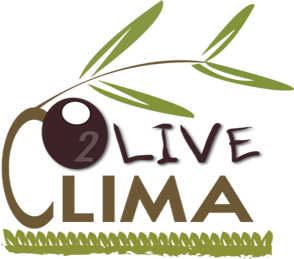
Introduction of new olive crop management practices focused on climate change mitigation and adaptation
Objective
oLIVE CLIMA project dealt with the application of environmentally friendly cultivation practices in olive growing with the aim of turning it into a climate change response/management tool.
The contribution to limiting climate change and adapting to the new climatic conditions was made through:
– increasing the sequestration of greenhouse gases from the atmosphere in the plants and in the soil of the olive grove
Application & Practices
The application was carried out in 40 olive groves per area in irrigated and dry conditions of producers in the Prefecture of Heraklion, in the Prefecture of Lasithi and in the Prefecture of Messinia.
The practices implemented can be divided into two groups:
Aim of the project
The main objectives of the project were:
–.Identification of agricultural practices that lead to an increase in the absorption of atmospheric carbon dioxide by plants
–.Reversing the trend of decreasing soil organic matter, erosion and desertification with measures that increase the absorption of organic matter in the soil
–.Taking measures to reduce greenhouse gas emissions and other environmental impacts from plant production
–.Providing growers with methods to upgrade biodiversity
–.Development of environmental indicators to monitor and calculate, through life cycle analysis and specific models, the carbon balance in olive cultivation
The effectiveness of the proposed practices in reversing climate change, their effect on fruit and olive oil production and their applicability in technical as well as economic terms was evaluated through a program of sampling and measurements as well as with special mathematical models over a 5-year period, compared to olive groves contractual management.
Project Partners
The partners of the project were: ANATOLIKI S.A., Institute of Olive and Subtropical Plants of Chania, Institute of Soil Science of Athens (IEA), Institute of Sanitary Improvements (IEB), University of Vasilikata, Italy - Department of European and Mediterranean Culture (DICEM), RODAXAgro Ltd, AgroTypos S.A., AS NILEAS, AS PEZA, AS MERAMVELLO.
Green Technologies Ltd was an external partner to University of Basilicata - Dipartimento delle Culture Europee e del Mediterraneo in the project.
Funding
EU (LIFE11 ENV/GR/942 oLIVE-CLIMA)